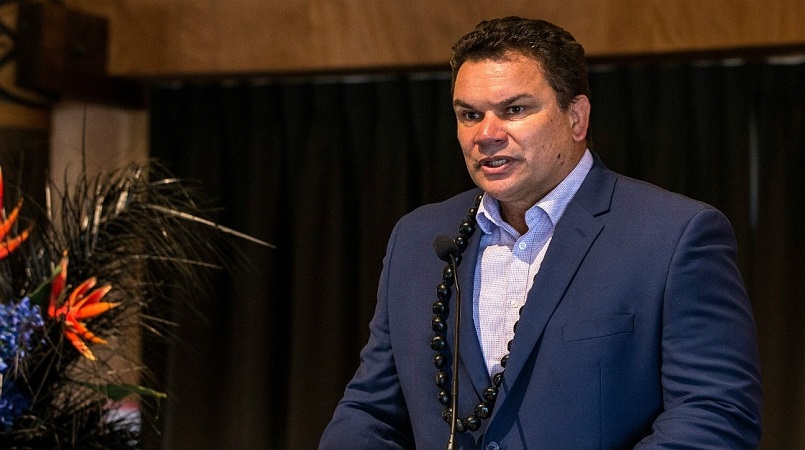
All Black great Michael Jones became a hero to a generation of Kiwi kids in 1987 when his blinding speed and punishing tackles helped propel New Zealand to its first World Cup triumph.
Yet, three decades on, it is the rugby hall of famer's ability to inspire a new generation of Pacific and Maori kids off the field, which has earned him a knighthood in this year's Queen's Birthday honours.
Chuffed with the honour, Sir Michael has been recognised for setting up community trusts and even a high school, designed to help Pacific kids in New Zealand complete their education and achieve their goals.
The former west Auckland Kiwi-Samoan boy says the idea is to show Pacific kids they have support and are part of a wider team.
"It takes a village to raise a child," he tells NZ Newswire at the Pacific Advance Senior School he helped establish in Otahuhu in south Auckland.
"I'm a product of a village. My father passed away when I was four years old and I was raised by my mother and aunties and uncles and my older siblings in a small house in west Auckland."
"We didn't have much, we struggled financially, but I was rich in terms of the people around me."
The sense of belonging to a village or community can sadly be a feeling that is hard to find for some of the troubled youth Sir Michael's groups, including the Village Community and Youth Trust and Pacific Advance Senior School, aim to help.
Some of the teens are at risk of dropping out of school and falling into gang activity.
To connect with them and the about 100 Pacific and Maori students it has enrolled with it, the Pacific Advance Senior School uses innovative teaching techniques and what Sir Michael calls a Pacific cultural outlook.
This includes using sport and music as "hooks" to grab the student's attention.
"Sport is such a powerful tool and we see it as a real key for us along with music," he says.
"For whatever reason, it is in our DNA as Pacific people. We have a real passion for it."
He says rugby taught him self-confidence and resilience, with the times he was injured and feeling low just as important in building his character as the highs.
This sense of resilience and knowledge that you have a "village" of people ready to support you through hard times is a key message his team tries to thread through their programmes.
"Young people when they go home to these neighbourhoods and streets, it is tough, so they have to build that into their inner core," he says.
The aim is ultimately to "make the next generation better than us" and provide an environment for them to thrive.
But for a down-to-earth Aucklander more commonly known by his rugby nickname, "the Iceman", will his new title of "Sir" ever feel comfortable?
"I still prefer to be remembered or seen as the westie boy from out west Auckland, Kiwi Samoan and that's me - nothing changes," he says.
